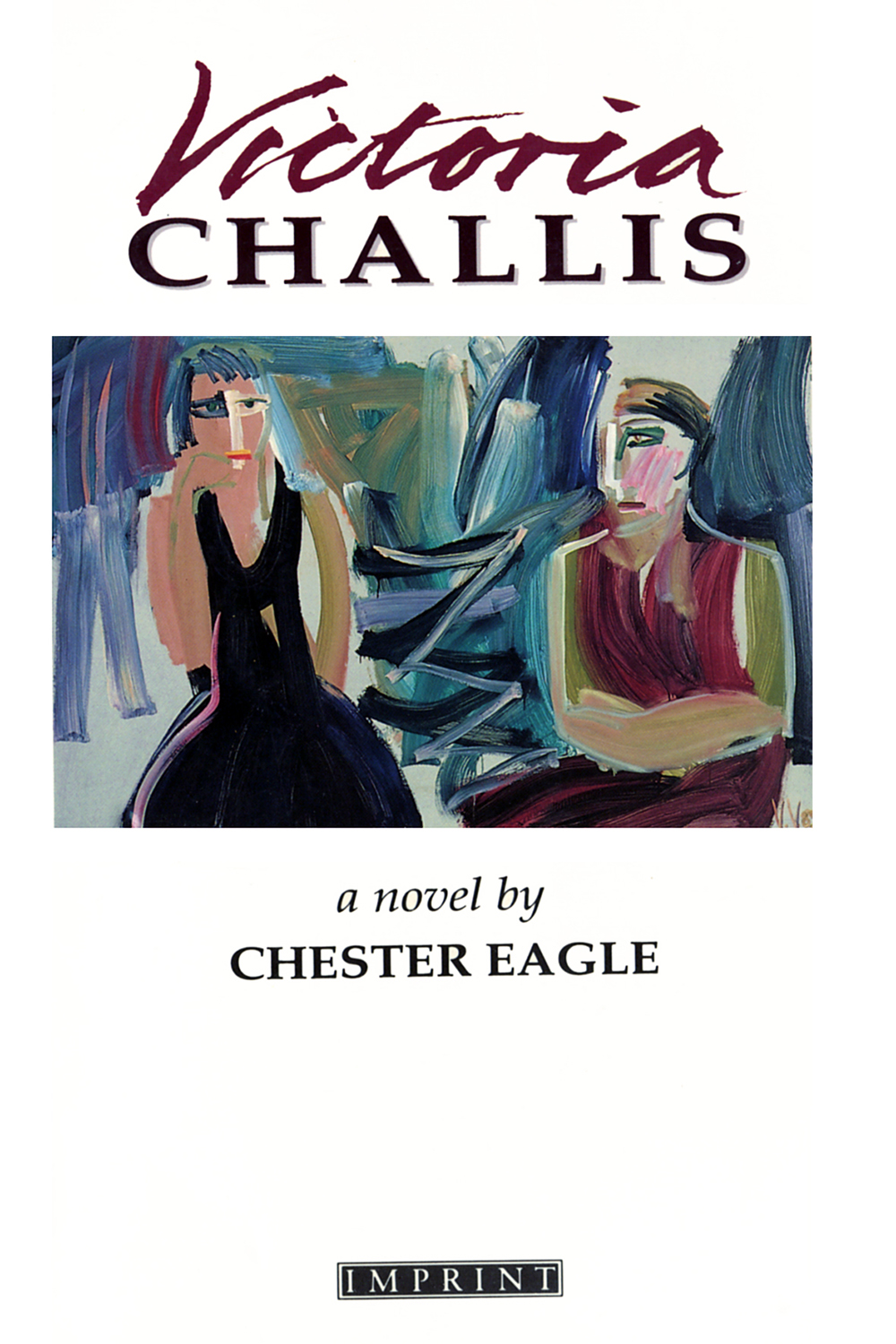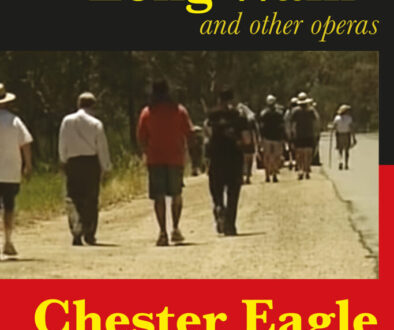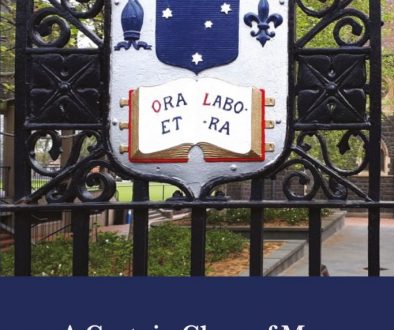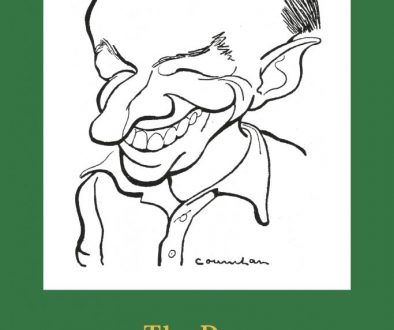Victoria Challis

‘What’s in a name, anyway?’
‘ Just about everything,’ she whispered.
He handed her some letters. ‘If you were right about that, I’d know all about you.’
Shaded by plane trees, they stared at each other.
Victoria Challis and her postman, who never address each other by name. Victoria and her politician husband. Victoria and her mother, the ‘Great Lady’, living on the highpoint of her wealthy suburb. And the prowler, who’s roamed the hill for years. All of them tied together by unexpected bonds…
Chester Eagle’s latest novel examines, not without some humour and whimsy, a variety of relationships; but an awareness of what’s available and allowable for us now that the women’s movement has driven wedges into the patriarchy permeates both plot and style.
Written by Chester Eagle
Edited by Nikki Christer
Cover by Vicki Varvaressos painting Two women (black dress) 1989 (courtesy of artist)
First published 1991 by Harper Collins
2,898 copies printed
58,400 words
Electronic publication by Trojan Press (2006)
The writing of this book:
This book was written in 1988, when I had the third and last of my Australia Council grants. In October 1988 I reached 55 years of age and retired from the TAFE teaching service. I was now self-supporting, and I had all the time in the world, so I didn’t feel free to apply for any more grants. A few years later I made myself more or less ineligible for such grants because I left the world of commercial publishing and started issuing my books myself. More of that later.
I wrote this book assuming it was going to be published by McPhee Gribble but I was approached by Harper Collins/Angus and Robertson, and transferred to that publishing house. I never got to see their offices in Sydney because our business was transacted by mail and over an afternoon tea with Nikki Chryster at the Windsor Hotel. I’ve loved the Windsor since I first saw it as a schoolboy, and regret that time and changing fashion have reduced its high and central place in Melbourne life.
Victoria Challis posed considerable technical problems. It’s a tale about what the British might call an upstairs/downstairs love affair. It’s about the development of a young woman who’s been under the dominance of her mother; it’s about state politics (Victoria’s husband); and it’s about other people who don’t credit themselves with any importance. It’s about the difficulty of managing a passion that is pure in a world where sordid drama is the norm, at least for the minds of average, not specially critical media-consumers. If the rhetoric for understanding things is crude, how can more developed, more refined feelings get satisfactory expression?
The postman, Fred, is an observer of those he delivers mail to. Mrs Challis, Victoria’s mother, tells him that there’s a Peeping Tom in the area; ‘How do you know it isn’t me?’ he replies. She takes the wind out of his sails by saying she thought he might be the very one. The Peeping Tom is actually the former husband of a woman that Fred knows, and likes, called Leanne. Leanne works in the electoral office of the local MP – Tony Decker, the husband of Victoria Challis, son in law of Mrs Challis. The grouping is tight. The relationships are at best uncomfortable: then Victoria falls in love with Fred, the postman, and vice versa. A radiant love, a perfected love, has entered the world. It seems impossible that it can last, and after a time Victoria takes up the challenge of her family situation and relinquishes the love. For the novelist, this needs to seem credible, while the love between politician’s wife and postman has to be shown as something special. Some trickery in the narrative approach is required.
Fred and Victoria speak to each other without quotation marks. Nor do they address each other by name. Their thoughts are shared between the two of them, and not with the rest of the world. We are overhearing their minds when their words are quoted on the page. Their love is so great that when they take a trip into the mountains the world loses its steadiness, its ‘reality’. The mountains look tenderly upon them. The flowers listen. Shafts of light belong to them alone. They comment on the fact that they seem able to draw energy from the world around them, as if there is an element of robbery in their way of sustaining love.
Perhaps this is so. Victoria’s mother and her husband find her absences exasperating. She senses that she must return to duty, and that her times with Fred are excursions, disappearances really, in stolen time. Victoria has a last night with Fred, knowing that she’s going to desert him, and deserts him. He’s heart-broken, but cannot fail to see that life is going on around him.
And ending. Another friend of Fred’s, and of Victoria, is Marj, Victoria’s housekeeper. She returns from a camping trip around Australia with the body of Jack, her husband, in the back of a van. He’s had a heart attack, and Marj decides that he was lucky, because his heart attack was well-timed; Jack never wanted to get back home, he wanted to travel forever. As Victoria deals with this, and bonds with the widowed Marj, and with her mother, we see that she is gaining strength from the fact that she’ll never ‘disappear’ again. It’s Fred who is the loser, and he knows it. Tony, the politician, now has a wife who will sustain him. Mrs Challis has a daughter that she’s proud of, not a mutinous semi-child. And the reader? The reader has been invited to consider the mysterious ways of love, how it comes into the world, who it chooses as its embodiments, how it affects us, how it ends …
Haunting the book is the tale of two policemen, and how one of them became the lover of the other’s wife, and believed that he could have her if he killed her husband. It’s everyone’s model of a love-triangle, a love-tragedy, and it’s a cliché. Victoria Challis, Fred, and all the others, don’t live according to the cliché, they fire no shots, and no bodies fall bleeding to the ground … but the consequences are almost as dire, the difficulties almost as great.
When I was writing the book I became perturbed by the arrival of the magical elements I mentioned before – mountains commenting on the lovers, and so on. I thought that either the book or its author had taken leave of their senses. But each morning, as I sat at the desk, the book pressed on, apparently knowing what it was doing, and when I saw it finished, and loved it for what it was, I saw all over again that writers have to trust what their books intend to do. If the book doesn’t know best, you weren’t born to be a writer.
A last word about the postie’s whistle. I had the book well underway when some query came to my mind about posties letting residents know that their mail had been delivered. I went to the local post office to be told that posties hadn’t blown whistles for years. Their union had objected to the practice on the ground that whistles alerted dogs to the posties’ approach, and made their jobs unsafe. It turned out that John Doherty, my Ivanhoe postie, had been almost the last in Melbourne to keep blowing the whistle, and he’d just retired. I didn’t have the heart to take Fred’s whistle from him so I left the book as it was, and I never look at the reference to Fred’s whistle without thinking of John Doherty who blew when everyone else had stopped blowing.



